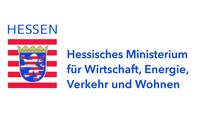


Commuting Costs and Their Influence on Commuting Decisions
Funded by: State of Hesse and HOLM funding under the "Innovations in Logistics and Mobility" measure of the Hessian Ministry of Economics, Energy, Transport and Housing
Duration: July 2025 until June 2026
Project Lead: Prof. Dr. Tobias Hagen
Contact: Nicole Reinfeld, M. Sc.
Commuting between home and workplace accounts for a significant share of daily travel in Germany – approximately 21% of all trips (MiT, 2017). In 2022, 20.3 million employees commuted to work, representing an increase of 3.5 million commuters compared to 2012.
The aim of the ComCost project is to quantify direct and indirect commuting costs – including expenses for fuel, parking fees, public transport tickets, and time – differentiated by spatial types, household types, and mobility patterns. The project also seeks to analyze how these costs influence commuting decisions.
Innovative statistical methods are applied to link anonymized, representative data sets. These include travel surveys such as MiD, MOP, SrV, as well as the Income and Expenditure Survey (EVS). Particular attention is given to current developments such as the introduction of the Deutschlandticket, the rise of remote work, and increasing energy prices.
